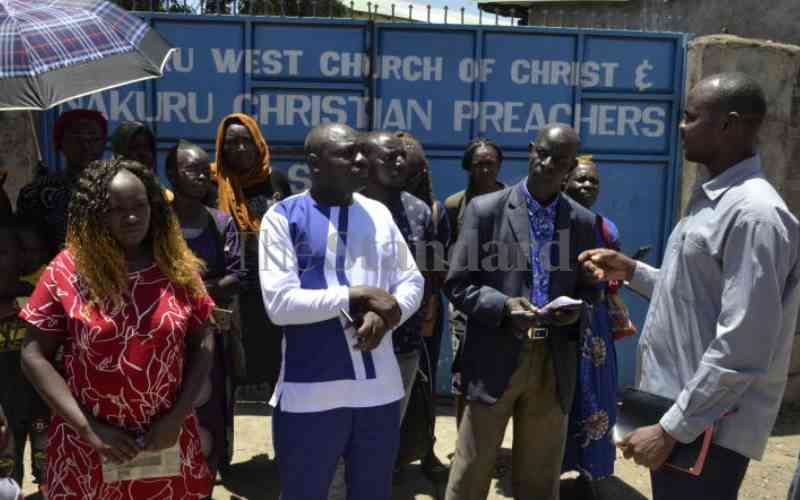×
The Standard e-Paper
Join Thousands Daily

On March 17, members of Nakuru West Church of Christ conducted a church service outside after one of the officials locked them out of the premises.
The dispute seemed to have escalated and could not be resolved, forcing the church elders to drag one of the officials to court with the matter pending before Justice Heston Nyaga of Nakuru High Court.







